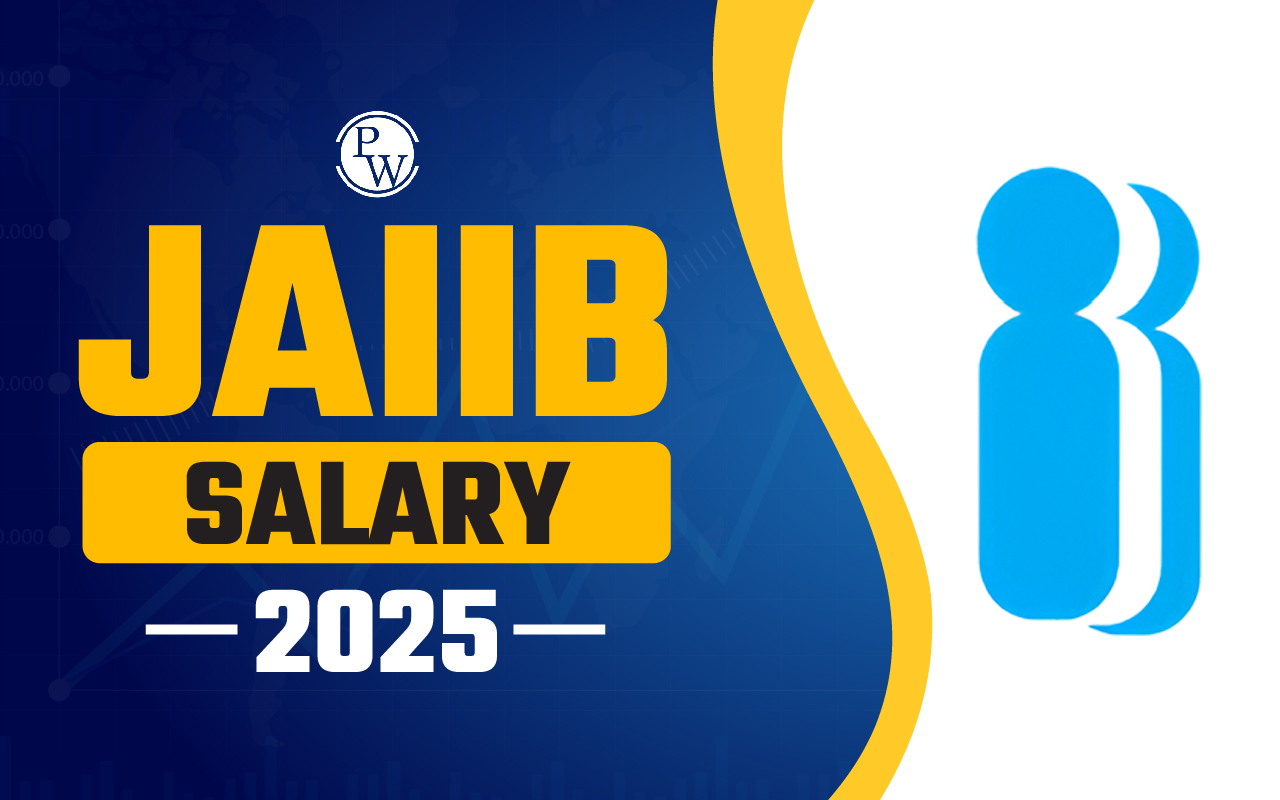

Role of Money Markets: The money market plays a crucial role in the financial system by facilitating short-term borrowing, lending, and trading of financial instruments. Think of it as a place where businesses, banks, governments, and investors come together to manage their cash for the short term, typically for periods of a year or less.
Just like individuals use savings accounts for quick access to their funds, these entities use the money market to meet their immediate cash needs or to park their surplus funds safely for brief periods. Essentially, the money market acts as a vital hub, ensuring that there is a steady flow of money available to keep the financial system running smoothly. Here, we've provided detailed information on the role of money markets for aspiring banking candidates. Let’s delve deeper into the meaning and role of money markets.What is the Money Market?
The money market is a segment within the financial system where short-term borrowing, lending, buying, and selling of financial instruments take place. These instruments typically mature in a year or less, making them ideal for managing immediate liquidity needs and short-term financial obligations. Various entities, including governments, corporations, banks, and investors, participate in the money market to fulfill their short-term funding requirements or invest their excess funds. Moreover, some examples of money market instruments include Treasury bills, commercial paper, certificates of deposit, banker’s acceptances, and repurchase agreements. The efficiency and liquidity of the money market stabilize the financial system and support economic activities by facilitating smooth capital flow and offering short-term financing solutions. Also Read: JAIIB CAIIB 2024 Exam ScheduleRole of Money Markets
The role of money markets is crucial in managing short-term borrowing and lending needs, ensuring smooth cash flow in the financial system. They determine prices of financial instruments, manage liquidity, support trade and commerce, and help banks manage reserves efficiently. Let's explore these roles of Money Markets in more detail:1. Short-Term Funding
Money markets provide a platform for institutions to address their short-term funding needs. Banks, corporations, and governments borrow money for brief periods, typically less than a year, to fill gaps in their cash flow or cover immediate expenses. Lenders, in turn, offer these funds and earn interest income on their surplus funds. For example, picture a small business needing $10,000 to purchase inventory for the holiday season. They borrow the amount from a bank with a commitment to repay it with interest within three months. Similarly, the bank lends some of its extra funds to the business, earning interest on the loan.2. Setting Market Prices
Another key role of money markets is setting prices for instruments like treasury bills and commercial paper through active trading. These prices reflect current market interest rates, helping determine the cost of short-term borrowing and potential returns for lenders. This process of price discovery is vital for assessing the financial system's health and the broader economy. For example, let's say a company issues commercial paper with various denominations. The prices of these papers in the market reveal the prevailing interest rates. Higher prices indicate lower rates, giving insights into economic conditions and investor expectations.3. Liquidity Management
Another important role of money markets is providing investors with secure and easily accessible options for their surplus funds. Money market instruments are highly liquid, meaning they can be converted into cash quickly without losing much value. This liquidity feature ensures that investors can readily access their funds when needed, making the money market a dependable choice for managing short-term liquidity needs. For example, consider someone investing $1,000 in a money market fund. Later, they encounter an unexpected car repair expense and require $500 urgently. They redeem their fund shares, promptly accessing the needed cash due to the high liquidity of the investment.4. Financing Trade
Another essential function or role of money markets is supporting international trade by offering financing solutions to exporters and importers. Instruments like letters of credit and banker’s acceptances facilitate smooth cross-border transactions. Importers can use these instruments to guarantee payment to exporters, while exporters can access funds before delivering goods. This function fosters smoother trade activities and reduces the risk associated with international transactions. For example, let's say a company in Canada wants to buy agricultural equipment from a manufacturer in Brazil. The Canadian company obtains a letter of credit to assure the Brazilian manufacturer of payment upon delivery. This instrument ensures trust in cross-border trade by guaranteeing payment upon the equipment's arrival.5. Reserve Management for Banks
Another significant role of money markets is helping banks manage their reserves efficiently. Banks need to maintain reserves to ensure stability and compliance with regulations. The money market enables banks to earn interest on these idle funds by investing in various money market instruments. This allows banks to generate a modest return while meeting their regulatory obligations. For example, consider a bank that needs to keep $5 million in reserves to meet regulatory requirements. Instead of letting this money sit idle, the bank invests a portion in short-term instruments like commercial paper. By doing so, the bank earns interest on its reserves, making the most of its funds.6. Central Bank Policies
Central banks play a crucial role in the money market by using it to implement monetary policy measures. Through open market activities, they purchase and sell money market instruments to affect interest rates and the amount of money in circulation. By adjusting these factors, central banks aim to achieve economic objectives like controlling inflation, boosting economic growth, or maintaining price stability. For example, let's say a central bank wants to control rising inflation. It decides to reduce the money supply by selling Treasury securities to commercial banks. In exchange, the central bank receives cash, effectively reducing the available funds in the market. This leads to higher interest rates and less spending, helping to control inflation.7. Boosting Investment Returns
Another important role of money markets is its ability to enhance investment yields for investors seeking conservative yet profitable options. Money market instruments offer moderate returns compared to traditional savings accounts or certificates of deposit, making them attractive to individuals and organizations looking to increase their yields without taking on excessive risk. For example, imagine someone wanting better returns than what a regular savings account offers. They invest $1,000 in a money market fund, which pools money from various investors and invests in different money market instruments. This fund provides slightly higher returns with relatively low risk compared to a typical savings account.8. Managing Financial Risks
Corporations and financial institutions use the money market to mitigate their interest rate and liquidity risks. They employ derivatives and short-term financing options like repurchase agreements (repos) to hedge against unfavorable market movements. These risk management tools promote financial stability and enable businesses to navigate uncertain market conditions more effectively. For example, let's say a company is worried about how fluctuating interest rates might affect its borrowing expenses. To address this concern, the company engages in an interest rate swap in the money market. This arrangement allows the company to exchange its fixed-rate interest payments for variable-rate payments, reducing the risk of potential losses.9. Facilitating Government Funding
Governments utilize the money market to raise funds for short-term budgetary needs by issuing Treasury bills. These bills help governments cover temporary deficits, manage cash flow fluctuations, and meet immediate financial obligations. The money market provides a dependable source of funds for governments while offering investors a safe investment opportunity. For example, imagine a government facing a sudden need for funds to cover immediate expenses during a budget shortfall. To address this, it issues Treasury bills with a commitment to repay the borrowed amount after a short period. This allows the government to secure necessary funds quickly and efficiently.10. Enhancing Investment Opportunities
The money market expands investment possibilities for both individual and institutional investors. By participating in money market activities, investors can diversify their portfolios beyond traditional stocks and bonds. This diversification helps to lower overall portfolio risk and provides a well-rounded investment strategy that suits different risk tolerances and financial objectives. For example, consider an investor looking to decrease risk in their portfolio. They diversify by spreading their investments across various options, including money market funds. During times of stock market volatility, the stability and liquidity of money market funds offer a reliable anchor in their investment mix.11. Utilisation of Surplus Funds
The money market helps individuals and entities make the most of their extra cash. Instead of letting it sit idle, they can invest it in various money market instruments to earn returns. This way, surplus funds are utilized efficiently, contributing to financial growth and stability For example, suppose a company has extra cash sitting in its account. Instead of leaving it unused, the company invests it in a money market fund. This allows them to earn interest on their surplus funds, maximizing their financial resources. Also Read: Payment Systems and Electronic Banking: Meaning, Types, Benefits & Regulations Furthermore, understanding the vital role of money markets highlights their critical importance in maintaining financial stability and facilitating economic growth. From providing liquidity to enabling efficient risk management, money markets serve as essential pillars of the global financial system, benefiting individuals, businesses, and governments alike. Therefore, Physics Wallah (PW) is the leading coaching institute for JAIIB/CAIIB students, offering personalized guidance and comprehensive study materials. With experienced educators and a commitment to excellence, PW ensures students are well-prepared to succeed in these competitive exams and thrive in the financial sector.Role of Money Markets FAQs
Q1. What is the money market?
Ans. The money market is a segment within the financial market where short-term financial stuff gets traded. It's where people and organizations can quickly borrow or lend money for short periods, usually up to a year.
Q2. What are the roles of money markets?
Ans. The role of money markets is to keep the financial gears running smoothly by handling short-term borrowing and lending, setting prices for financial stuff, managing liquidity (making sure there's enough cash flow), supporting trade and commerce, and helping banks manage their reserves.
Q3. How does the money market help corporations and governments manage their finances?
Ans. Corporations and governments often need cash fast for short-term needs. The money market is like their go-to spot for quick, low-interest loans. It helps them cover sudden expenses, manage cash flow ups and downs, and keep their financial wheels turning.
Q4. What are Types of Instruments Traded in the Money Market?
Ans. In the money market, you'll find all sorts of financial tools being traded, like Treasury bills (basically IOUs from the government), commercial paper (short-term loans between big companies), certificates of deposit (kind of like savings accounts but for big money), and more.
Q5. What role does the money market play in monetary policy?
Ans. Ever wonder how interest rates get set? Well, central banks use the money market to do it. They buy or sell government stuff in the money market, which affects how much cash is floating around and the overall economy.
Talk to a counsellorHave doubts? Our support team will be happy to assist you!

Free Learning Resources
PW Books
Notes (Class 10-12)
PW Study Materials
Notes (Class 6-9)
Ncert Solutions
Govt Exams
Class 6th to 12th Online Courses
Govt Job Exams Courses
UPSC Coaching
Defence Exam Coaching
Gate Exam Coaching
Other Exams
Know about Physics Wallah
Physics Wallah is an Indian edtech platform that provides accessible & comprehensive learning experiences to students from Class 6th to postgraduate level. We also provide extensive NCERT solutions, sample paper, NEET, JEE Mains, BITSAT previous year papers & more such resources to students. Physics Wallah also caters to over 3.5 million registered students and over 78 lakh+ Youtube subscribers with 4.8 rating on its app.
We Stand Out because
We provide students with intensive courses with India’s qualified & experienced faculties & mentors. PW strives to make the learning experience comprehensive and accessible for students of all sections of society. We believe in empowering every single student who couldn't dream of a good career in engineering and medical field earlier.
Our Key Focus Areas
Physics Wallah's main focus is to make the learning experience as economical as possible for all students. With our affordable courses like Lakshya, Udaan and Arjuna and many others, we have been able to provide a platform for lakhs of aspirants. From providing Chemistry, Maths, Physics formula to giving e-books of eminent authors like RD Sharma, RS Aggarwal and Lakhmir Singh, PW focuses on every single student's need for preparation.
What Makes Us Different
Physics Wallah strives to develop a comprehensive pedagogical structure for students, where they get a state-of-the-art learning experience with study material and resources. Apart from catering students preparing for JEE Mains and NEET, PW also provides study material for each state board like Uttar Pradesh, Bihar, and others
Copyright © 2025 Physicswallah Limited All rights reserved.











